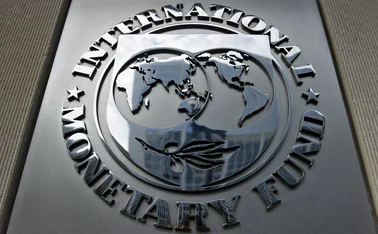
The end is nigh for the eurozone over Greece

The European monetary union was breathing its last breath and the political fallout from the impending Greek default would send it packing, two economists said on Tuesday at the inaugural Credit Institute meeting in London.
Geoffrey Wood, a professor of economics at Cass Business School, and Charles Dumas, the chairman and chief economist at Lombard Street Research, a consultancy, both said the eurozone had never been underpinned by a fundamentally sound structure. "No known currency union has survived without a strong fiscal core, and the capacity to have fiscal transfers from countries which are doing badly to regions that are doing well," Wood, who has also worked for the Bank of England, told the audience at the meeting, organised by Credit magazine.
The so-called ‘Club Med' economies- a title that refers to Portugal, Spain and Greece- were set to enter a deep recession as demand tailed off in the rest of Europe, Britain and the United States. Greece, constrained by the monetary union, simply did not have the option of inflating its debt away. "Deflation is a shock, but inflation immediately shows up in the nominal interest rate and screws up the economy," Dumas said, linking Japan's survival despite a staggering debt load to persistent deflation.
The Greek government had "violated every imaginable condition for fiscal solvency," Wood said, noting that it hinted at rot at the heart of the eurozone. Azad Zangana, the European economist for Schroders Investment Management, an asset management firm, said the lax implementation of the Stability and Growth pact, designed to enforce fiscal discipline among members of the Economic and Monetary Union of the European Union, was to blame for this. "Country after country was able to get away with running deficits larger than 3% for no real reason," he said, adding that Greece had been chief among the offenders.
A Fund bailout?
With the prospect of a European solution looking increasingly forlorn, Jim Leaviss, a former Bank analyst and the head of retail fixed income at M&G Investment Management, flagged the possibility of an IMF bailout for beleaguered Greece. "The IMF has got a budget of around $700 billion, and the worst case scenario for a years-worth of deficit in Portugal, Italy, Greece, and Spain is in the region of $250 billion. So there's potentially three years-worth of bailout there," he noted.
But this was quickly shot down by Wood and Dumas, who saw a range of problems with the prospect of Fund assistance. Dumas noted the IMF could not tell the troubled southern European economies to devalue their currencies because of their euro membership, yet this was the crux of the problem. "To get labour costs competitive, [the south European economies] need a 20% cut in wages, and that's completely unachievable in any historical context at all," he said. "We know perfectly well that this thing will not survive- they cannot get growth to offset the contraction in domestic demand, or the unemployment needed to cut wages by that level."
The Fund's mandate simply did not put the responsibility of debt-related bailout on its shoulders, Wood added, and without the political will for fiscal centralisation, the euro's lifespan was limited. Whether that would mean a complete collapse of the single currency system or a downscaling so that it only covered a small group of countries with Germany at its centre, he was unsure.
All four panellists agreed, however, that an outright default was unlikely in Greece, saying technical default in the style of a debt restructuring or pushing back maturity deadlines was much more probable.
The euro will pull through
In addition, Zangana and Leaviss were more upbeat on the future of the eurozone. Zangana noted that "where there is a political will, there is a way," and that recent steps taken by the Greek government were reassuring in this respect. "This is where the rhetoric has actually helped the Greek government. It's very difficult to sell tax rises and spending cuts. It's much easier when you create a crisis," he said.
The lingering memory of fraction within Europe would ultimately nudge a triumph of political will, said Leaviss. "Everyone in this room, within their lifetime, has seen Greece, Portugal and Spain as fascist dictatorships- we're not going to be allowed to get past that position, particularly as during the early 1990s we saw the breakup of Yugoslavia resulting in a horrendous war on Europe's doorstep," Leaviss said.
Only users who have a paid subscription or are part of a corporate subscription are able to print or copy content.
To access these options, along with all other subscription benefits, please contact info@centralbanking.com or view our subscription options here: http://subscriptions.centralbanking.com/subscribe
You are currently unable to print this content. Please contact info@centralbanking.com to find out more.
You are currently unable to copy this content. Please contact info@centralbanking.com to find out more.
Copyright Infopro Digital Limited. All rights reserved.
You may share this content using our article tools. Printing this content is for the sole use of the Authorised User (named subscriber), as outlined in our terms and conditions - https://www.infopro-insight.com/terms-conditions/insight-subscriptions/
If you would like to purchase additional rights please email info@centralbanking.com
Copyright Infopro Digital Limited. All rights reserved.
You may share this content using our article tools. Copying this content is for the sole use of the Authorised User (named subscriber), as outlined in our terms and conditions - https://www.infopro-insight.com/terms-conditions/insight-subscriptions/
If you would like to purchase additional rights please email info@centralbanking.com







